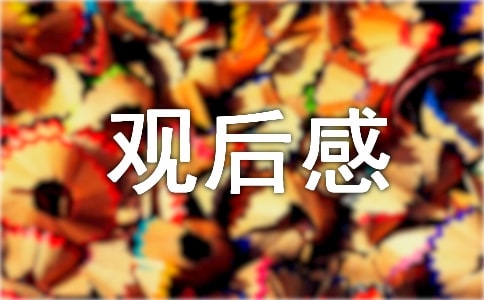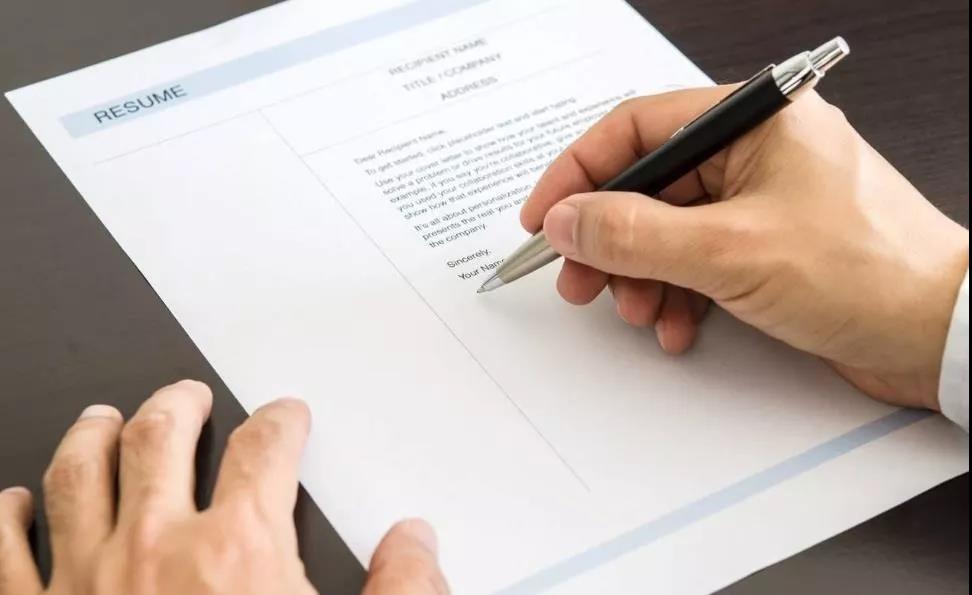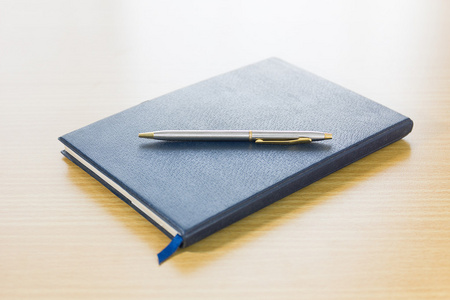小学生英语复习第1篇期末考试在即,期末复习工作相继展开,如何有效利用时间,提高复习效率成了老师们议论的重点话题。期末复习质量的好坏,直接影响到学生期末的总成绩,同时也会影响学生今后的继续学习。这是学生下面是小编为大家整理的小学生英语复习热门7篇,供大家参考。

小学生英语复习 第1篇
期末考试在即,期末复习工作相继展开,如何有效利用时间,提高复习效率成了老师们议论的重点话题。期末复习质量的好坏,直接影响到学生期末的总成绩,同时也会影响学生今后的继续学习。这是学生学习过程中的一个重要环节。因此,认真、全面的搞好期末综合复习,意义非常重大。
一、班级情况分析
三年级有25名学生。三年级的课程任务主要是让学生能听说认读一些日常生活中的物体的英语单词,在一定的情境中能说日常交际用语。三年级所学的知识是一些最基础的内容,对于一些有上进心的学生来说是一件简单的事,但对于那些学习懒散的的学生有一定的难度。四年级23人,大部分同学学习兴趣浓厚,考试成绩能达到优秀,但仍有三四个后进生,背单词背句型十分费劲, 每次考试都处于不及格或是刚刚及格的"状态。五年级有学生19人,由于基础没打好,所以一般学生虽然能够及格,但是很少达到优秀。有个别优异学生。剩下的七八个对英语学习没有兴趣,每次上课都是勉强跟着听,一到自己背的内容就皱起眉头,后进生比较多。
二、复习目标
通过系统地复习,让学生能扎实地掌握本学期的所学的单词、句型,能灵活地运用所学知识。
通过总复习,让全体学生特别是中下生能扎实地掌握本学期的知识点,全面提高班级的合格率和优秀率。
三、复习内容
1、每单元的单词、词组、句型和本学期所学的歌曲。
2、常考的试题题型,包括听力部分的题型和笔试部分的题型。
四、具体措施
1、把好全体学生的单词关,每个学生都必须能准确认读出所学重点单词。
2、设计练习,把每单元的句型重点复习并巩固。
3、设计不同类型的题型,训练学生的审题能力。
4、重点辅导中下生,坚持做好课后的个别辅导。
5、开展“一帮一”活动,让中下生的成绩尽可能地提高。
6、做好学生的思想工作,让他们尽快地进入复习的状态。
7、 及时做好检测和小结工作,以便及时地调整复习计划。
8、多与家长联系,及时交流学生在校和在家的学习情况。
五、关注“学困生”
1、做好学生的思想工作,多与家长联系,了解学生的情况。
2、坚持做好课后的辅导工作,及时做好检测工作。
3、开展“一帮一”活动,让后进生遇到问题能及时解决。
4、及时表扬和鼓励学生,让他们恢复学习的自信心。
六、复习进度
16 周 复习1—3单元 主要是课文和单词
17——18周 复习4—6单元 主要是单词、课文和单元综合检测。
19 周 复习练习册 以最后综合检测为主。
小学生英语复习 第2篇
1、采取多样的复习形式,保持学生学习的兴趣。
(1)教师提问
这种方式比较直观、便捷,便于教师随时发现问题,依据实际情况及时调整复习进度和复习方法。表现在形式上也很灵活,可以是教师问,学生答;可以是学生互相问答;学生也可以向教师提问,有关他们复习中遇到的难题。
(2)随堂检测
随堂检测不宜量太大,面太广,而应立足本节课的复习内容设计检测题目,稍有扩展,抓住重点。检测结束后,可抽一些典型层面的学生试卷进行批阅,从典型中找共性,讲解、强调学生普遍容易出错的方面,从而达到预期的教学效果。
(3)学生独立反思
在英语复习课中,教师应留有一定的时间供学生自由支配,自己记忆、回顾本节课的复习要点,找出自己的薄弱环节和疑难之处,向教师请教并及时解决。
2、要给予学生关爱和鼓励。
复习阶段学生压力大,情绪波动大,因此,要营造宽松的复习氛围,增进与学生之间的情感交流,尊重理解学生,对一些基础较差的学生要多给他们鼓励,帮助他们克服心理的障碍,教会他们学习的方法,激发他们学好英语的动力。此外,复习安排还要注意劳逸结合,减轻学生的复习压力和负担,帮助他们克服紧张情绪,让每位学生保持良好的心理和生理状态。这一目标的达成离不开语、数、英三科的配合。
期望通过努力,辛苦付出的各位教师都能在即将到来的期末统考中看到学生令人欣喜的进步。
小学生英语复习 第3篇
一、26个字母:(要求会默写字母的大小写、连续听音书写字母、按顺序排列字母或单词) 元音字母:A a , Ee, Ii, Oo, Uu
二、 语音知识:
Aa name名字 cake蛋糕 gate大门 cage鸟笼 snake蛇 face脸 baby娃娃
apple苹果 cat猫 bag书包 hat帽子 fat胖的
Ee(ee,ea) these 这些 three三 sheep绵羊 knee膝盖 tree树 beans豆角
egg蛋 elephant大象 desk课桌 bed床 pen钢笔 leg 腿
Ii five 五 nine九 like 喜欢 kite风筝 bike自行车
fish鱼 big大的 six小的 milk牛奶 is是 it 它 this 这个
Oo(oa,oe) nose 鼻子 those那些 bone骨头 toe 脚趾头 goat山羊 boat船 coat 大衣
dog 狗 fox狐狸 frog 青蛙 box盒子 hot 热的 not不是
Uu you你,你们 use使用 computer计算机
blue 蓝色的 flute 笛子 June 六月
bus 公共汽车 umbrella 雨伞 uncle 叔叔
Cc CD 光盘 circle 圆形 cent 分钱
cat 猫 camera 照相机
Gg(ge)
orange 桔子 giraffe 长颈鹿 page 页
frog 青蛙 girl 女孩 big 大的 gate 大门
th thin 瘦的 three 三 thirteen 十三 mouth 嘴
mother 妈妈 father 爸爸 brother 兄弟 they 他们this 这个 that 那个 feather 羽毛
wh
what 什么 when 什么时候 where 哪里 why 为什么which 哪一个 white 白色的 water水 woman 女人 walk 走
who 谁 whose 谁的
ar car 汽车 park 公园 farm 农场 arm手臂 star星星
ir girl 女孩 bird 鸟 nurse护士 purse 钱包turtle 海龟 third第三 hurt 疼
ow cow奶牛 owl 猫头鹰 house 房子 mouse 鼠,鼠标cloudy多云的
oy
oi boy 男孩 toy 玩具 oyster 贝壳 oil 油coin 硬币 boil 沸腾
or
oor horse 马 store 商店 corn 玉米 door 门floor 地板
air
ear chair 椅子 hair 头发 pear 梨 bear 熊
oo
book 书 good 好的 look 看 foot 脚
moon 月亮 food 食物 pool 池子 room房间
字母s或es的发音:
字母s在词首发音为/s/, 在中间如:usually, television, treasure, casual中发音为/ /;以/p/, /t/, /k/ 清音收尾,读音为/s/;其他情况一般读音为/z/;以s, x, ch, sh 收尾加es的,es读音为/iz/。
字母y的发音: 一般字母y在词尾,发音为/i/,在词首发音为/j /, 在少数词cry,fly,try,dry, shy, my中发音为/ai/。
字母组合is, iss 在单词中发短音/is/,字母组合ees, eys, e’s, ese, eese, eeze在单词中发长音/i:z/.
不定冠词a和an都有“一个”的意思,在a, e, i, o, u 这5个元音字母发音前表示一个要用an,其余情况要用a 。
三、词汇归类:
1、 animals动物:
cat猫, dog狗, fish鱼, cow奶牛, fox狐狸, duck鸭 ,
bird鸟,bee蜜蜂,monkey猴子,donkey驴,horse马,rabbit兔子, lion狮子,tiger老虎,panda熊猫,goat山羊,sheep绵羊,snake蛇,bear熊,deer鹿。
2、 fruit水果:
apple苹果,pineapple菠萝,pear梨,banana香蕉,peach桃,
orange桔子,lemon柠檬,grape葡萄, watermelon西瓜,
kiwi fruit猕猴桃。
3、vegetables蔬菜:eggplants 茄子 peppers 辣椒 cabbages 圆白菜tomatoes 西红柿potatoes 土豆cucumbers 黄瓜cauliflowers 菜花 beans 豆角 mushrooms 蘑菇 onions洋葱
4、 食品:hot dog热狗 noodles面条 corn玉米rice米饭 chicken鸡肉
hamburger 汉堡包French fries 炸薯条 fried rice 炒米饭
milk牛奶 soup 汤 juice 果汁 ice cream 冰淇淋
5、 学习用具:bag书包 , pen钢笔, pencil铅笔 ,pencil-box盒子, book书,
desk课桌, ruler尺子, chair椅子, ball球 ,eraser橡皮,
pencil sharpener转笔刀。
6、numbers数字:
1)基数词:
One 1, two 2, three 3, four 4,five 5, six 6, seven 7, eight 8, nine 9, ten 10 ,eleven 11, twelve 12, thirteen 13, fourteen 14, fifteen 15,sixteen 16,seventeen 17 ,eighteen 18,nineteen 19, twenty 20。
twenty-one 21,twenty-six 26,…… thirty 30, forty 40, fifty 50, sixty 60 ,seventy 70, eighty 80, ninety 90, one hundred 100 , two hundred 200.
2)序数词:first 第一, second第二 , third第三, fourth第四 , fifth第五,
Sixth第六, seventh第七, eighth第八, ninth第九, tenth第十。
7、body身体部位:
eye眼 ear耳 nose鼻 face脸 mouth嘴
leg腿 arm手臂 knee膝盖 foot脚 toe脚趾tongue舌 finger手指hand手 head头 hair头发 chest 胸 ankle 脚踝
8、job职业:
vet兽医 nurse护士teacher 老师 doctor 医生 student 学生 pilot飞行员 worker工人farmer农民 dancer舞蹈家 policeman 警察. juggler 杂耍演员 singer歌手
9、subject科目:art美术 P.E.体育 math数学 music音乐 Chinese 语文English英语history历史 science科学 geography 地理学
10、weather天气:sunny 阳光灿烂的 cloudy 多云的 rainy 多雨的 snowy 多雪的windy 多风的 fine 晴好的
11、season季节:spring春季, summer夏季, autumn秋季, winter冬季
12、方位介词:on在……上面, under在……下面, in在……里面,
in front of在……前面, behind 在……后面, between在……之间,
next to挨着……, near在……附近
13、color颜色:
red红色, yellow黄色, brown棕色, blue蓝色, purple紫色, orange橙色, black黑色, white白色
14、week星期: Monday星期一, Tuesday星期二, Wednesday星期三,
Thursday星期四, Friday星期五, Saturday星期六,Sunday星期日
15、month月份: January一月, February二月, March三月, April四月, May 五月,
June六月, July七月, August八月, September九月, October十月,
November十一月, December十二月.
16、sports运动:football足球 tennis网球basketball 篮球 volleyball排球badminton 羽毛球 table tennis乒乓球swimming游泳 running跑步 jumping跳跃skiing 滑雪 skating滑冰bowling保龄
17、clothes服装:shirt 衬衫 dress 连衣裙sweater毛衣 skirt 短裙coat大衣trousers 长裤 shorts 短裤 jeans 牛仔裤 tie 领带sock袜子 shoes 鞋pajamas 睡衣sweatpants 运动裤 baseball cap 棒球帽 belt 腰带 T-shirt T恤衫glove 手套 purse女士钱包cap 便帽 hat 礼帽
18、place地方场所:
zoo 动物园 office办公室classroom教室 school 学校 bank 银行 park 公园 police station 警察局swimming pool 游泳池 supermarket 超市library 图书馆restaurant 餐馆 train station 火车站 post office 邮局cinema 电影院museum 博物馆
19、人称代词:I 我, you 你,你们,he他,she她, it它, we我们,they他们
20、形容词性物主代词:my我的,your你的,你们的,his他的,her她的,
our我们的,their他们的
21、名词性物主代词:mine我的 yours你的,你们的 his他的hers她的, ours我们的,theirs他们的
22、带wh的特殊疑问词:
what什么 where 哪里 who谁 whose谁的
when什么时候 which 哪个
23、形容词:
big 大的. boring 无聊的 young 年轻的thin 瘦的 small 小的easy容易的 long 长的 cheap 便宜的 fast 快的 short 短的old 老的,旧的expensive 贵的fat 胖的hot 热的 difficult 困难的slow慢的 cold 冷的 interesting 有趣的exciting 令人兴奋的
24、family家庭成员:mother妈妈 father爸爸brother哥哥弟弟 sister姐妹 uncle叔叔aunt阿姨 grandmother奶奶 grandfather爷爷
25、电器:walkman 随身听 cassette 磁带 radio 录音机 diskman 光盘播放器television 电视 CD 光盘 video 录像带
26、computer电脑部件:keyboard 键盘mouse 鼠标speaker 扬声器 hard disk
硬盘disk磁盘 screen 屏幕 CD光盘 printer打印机
27、How often频率词:every day 每天 every week 每周 once a week每周一次 twice a week 每周两次 always 一直 usually 通常 hardly ever 几乎不 never 从不
28、signs标识 : Don’t walk. 不能走 Don’t litter. 不要扔垃圾 Don’t touch.不要摸 No swimming. 禁止照相 No parking 禁止停车 No food.禁止吃 No smoking.禁止抽烟 No cameras. 禁止照相
29、chores家务活动:walk the dog遛狗 wash the dog给狗洗澡 wash the dishes洗碗feed the fish喂鱼 make the bed整理床铺polish shoes刷鞋 cut the grass 修剪草坪clean the room打扫房间 clean the window water the plants给植物浇水 dust the furniture 擦家具 take out the trash倒垃圾make breakfast做早饭
30、sports体育活动:play football踢足球, play tennis打网球, play basketball打篮球 play bowling 打保龄球 play badminton打羽毛球 play table tennis打乒乓球play volleyball 打排球 do karate练习空手道, go skiing去滑雪 , go skating去滑冰, go swimming去游泳, ride a horse骑马 work out at the gym健身房健身
31、日常生活活动:
get up 起床, go to bed 上床睡觉, go to school上学, go to park 去公园, watch TV看电视, sing songs唱歌,see a movie看电影, listen to the music听音乐, fly kites放风筝,
go shopping去购物,visit friends拜访朋友,do homework做家庭作业, play the piano弹钢琴,play the guitar弹吉他,play the drums打鼓,play the violin 拉小提琴.
四、功能句型:
(一)针对个人情况进行交流(提问与回答):
1、 询问名字:What’s your name? My name’s Wang Ling. I’m Charlie
2、 询问年龄:How old are you? I’m twelve.
How old is he? He is thirteen.
3、 询问生日:When is your birthday? It’s March 12th.
4、 询问职业:Are you a doctor? Yes, I am. No, I am not.
What do you do? I am a teacher.
What does he do? He is a vet.
5、 询问身高:How tall are you? I am 158 centimeters tall.
6、 询问体重:How heavy are you? I weight 60 kilograms.
7、 询问喜爱的颜色:Do you like red? Yes, I do. No, I don’t.
Does he like red? Yes, he does. No, he doesn’t..
What color do you like? I like green.
What color does he like? He likes blue.
8、 询问喜爱的食品:What food do you like? I like chicken.
9、 询问喜爱的学科:What’s your favorite subject? My favorite subject is math.
10、 询问喜爱的季节:What season do you like? I like spring.
11、 询问喜爱的运动:What sport do you like? I like playing football.
12、 询问喜爱的动物:What animal do you like? I like dogs.
13、 询问承担的家务:
What chores do you have to do? I have to walk the dog.
What chores does he have to do? He has to feed the fish.
14、 询问更喜欢什么物品:Which sunglasses do you prefer?
I prefer these.
15、 询问身体状况:How are you today? I’m not well.
What’s the matter? My leg hurts.
16、 询问想要的、需要的:What do you want? I want a T-shirt.
What do you need? I need flour, milk, eggs and butter.
17、 询问物品拥有:Do you have a cap? Yes, I do. No, I don’t.
Does he have a watch? Yes, he does. No, he doesn’t.
18、 询问经常在固定的时间做什么事情:
What do you do on Sunday? I play tennis.
What does he do on Monday? He goes to school.
19、 询问经常在什么时间做这样的事情:
When do you get up? I get up at 6:00.
When does he get up? He gets up at 6:30.
20、 询问现在正在做什么事情:What are you doing? I’m reading a book.
What is he doing? He is singing.
21、 询问将来的计划、活动安排:
What are you going to do tomorrow? I’m going to ride a horse.
What will you do next Sunday? I will go shopping.
What are you doing tomorrow? I’m going bowling.
22、 询问活动的频率次数:How often do you play tennis? Twice a week.
23、 询问所在的地点、方位:Where are you? I’m in front of the car.
Where were you yesterday? I was at home.
24、 询问过去时间内做了什么事情:
What did you do yesterday? I went to school.
25、 询问、质疑过去所做过的事情:Did you go to the park last night?
Yes, I did. No, I didn’t.
26、 询问是谁: Who’s that? That’s Ann.
Who’ he? He’s my father.
Who was first? Ken was first.
(二)针对物品情况进行交流(提问与回答):
1、询问物品名称:What’s this? It’s a pen. What are these? They are pens.,
2、询问物品数量:How many pencils are there? There are ten.
3、询问物品价钱:How much is the book? It is ¥30.
How much are the books? They are ¥60.
How much does this belt cost? It costs ﹩35
How much do these belts cost? They cost ﹩70.
4、询问物品所属:Whose computer is this? This is my computer. It’s Ken’s.
Whose CDs are these? They are our CDs. They’re Ann’s.
5、询问物品颜色等特征:What color is the duck? It’s yellow.
6、询问物品位置:Where is the book? It’s under the bag.
(三)针对时间、天气进行交流(提问与回答):
1、询问钟表时刻:
What time is it? It’s 6:20.
2、询问星期:
What day is today? It’s Monday.
3、询问月份日期:What’s the date today? It’s September 1st.
4、询问天气状况:What’s the weather like? It’s windy.
(四)以Can 开头的问句:
1、问答能力:Can you swim? Yes,I can. No, I can’t.
2、请求许可:Can he go out after school? Yes, he can. No, he can’t.
(五)询问比赛规则:What are the rules? You must wear sports shoes.
(六)提出问题与建议:
I’m bored. What should I do? You should play this game.
He is tired. What should he do? He should go to bed early.
(七)使用反意疑问句求证信息:I can watch TV, can’t I? Yes, you can.
He isn’t a teacher, is he? No, he isn’t.
(八)表达同意或不同意:
In the year 2050 life will be better. So do I.
( I do, too. )
I don’t like snakes. Neither do I.
( I don’t, either.)
五、语法知识:
(一)英语动词4种时态:
1、一般现在时:常与表示程度或频度的词连用,如:often(经常) , usually(通常,一般) , sometimes(有时) , always(总是,一直) , never(从不),表示经常性或习惯性的动作,表示现在的特征或状态,表示普遍真理。用动词原形表示,第三人称单数后,动词要在词尾加s(或es,或变y为i再加es)。如:I often get up at 7:00.
He often gets up at 7:30.
2、现在进行时:表示现在或现在这一阶段正在进行的动作。用am / is / are 加 动词ing形式表示,如: What are you doing? I am reading a book. What is he doing? He is singing.
3、一般将来时:常与表示将来的时间连用,如:tomorrow , next week , next year等,表示将要发生的动作或情况。用 am/ is/ are 加 going to形式表示,如:What are you going to do tomorrow? I’m going to ride a horse. 用will 加动词原形表示,如:What will you do next Sunday? I will go shopping. 用am/ is/ are 加动词ing形式表示,如:What are you doing tomorrow? I’m going bowling.
4、一般过去时:经常与表示过去的时间连用, 如: yesterday, last night等, 表示过去某时发生的动作或情况。动词要用动词的过去式。如:
Who was first? Ken was first.
Where were you yesterday? I was at home.
What did you do yesterday? I went to school.
(二)形容词的比较级和最高级:
1、单音节词:比较级加er, 最高级加est. 如:tall---taller---- the tallest,
He is taller than his brother. Tom is the tallest in his class.
2、多音节词和部分双音节词:比较级加more,最高级加 the most. 如:
interesting----more interesting---the most interesting,
Music is interesting subject. P.E. is more interesting than music..
Science is the most interesting subject.
最全的小学英语考试总复习资料及复习要点学大教育网为大家带来过了,希望大家能够掌握好小学英语的重点知识,这样就能取得事半功倍的复习效果,从而在英语考试中取得高分。
小学生英语复习 第4篇
一、听句子三次,选出句子含有的信息。
1.The girl has a head a che.She should go an dseea doctor.
2.My favour it e subject is Maths.
3.The cheetah can run more than 95 kilometresanhour.
4.My mother usually goes to work at a quarter to eight.
5.I like playing badminton with my friend safter school.
6.Tomorrow will bera in yand wet.
7.The shark can swim fas test of the three.
8.I like autumn.Because I can go sight seeing.
二、听每组的三个句子三次,将句子的大写字母编号写在相应图下的编号。
第一组:
A.The bou feels cold.
B.The girl likes watching TV.
C.The girl has a fever.She can’t go to school.
D.The children like making snow menin winter.
E.Look,Mike is swim ming faster than Ben.
F.The boy like sskiiing.
第二组:
A.The boy usually has lunch at about twelve.
B.The boy of ten read sin the library.
C.The girl has a toot hache.
D.The boy isill.He is taking them edicine.
E.The girl always get supearly in the morning.
F.The girl usually practises the piano for an hour after dinner.
三、听句子写出句子中所缺的单词。(6分)
1.What the weather like will be tomorrow?
2.How many kinds of vege tables are there in your kitchen.
3.Would you like to go to the Guangzhou Rest aur ant again?
4.Miss Smith is worried about her pen friend.
5.Take them edicine three time sa day.And you’d better havea good rest.
6.Kangaroo can jump muchhig her than ther abbit.
7.Our tea chers work harder than theirs.
四、听小对话及问题,选出问题的答案。(5分)
1.A:Which sea son do you like best,Janet?
B:I like summer best.
A:Why?
B:Because I can we army beautiful clothes.
Q:Why does Janet like summer?
2.A:How long does summer last in Hainan Island?
B:It’s avery long season there.It can last for more than four months.
Q:How long will the summer last in Hainan Island?
3.A:You look tired,Kelly.What do you usually do in theevenings?
B:I never watch TV or goout.Because Ihavea lot of home work to do.
Q:What does Kelly usually do in theevenings?
4.A:Who is that lady?
B:She’s my Chinese teacher.
Q:Which subject does the lady teach?
5.A:What do you do in the evening,Ben?
B:I usually do my homework.Some times I do house work.
Q:How of ten does Ben do house workin the evening?
小学生英语复习 第5篇
ten times 十次
turn left 向左转
right hand 右手
every day 每天
touch… 用……触摸……
lift up 抬起
lie on one’s back 仰躺
put… 把……放在……里面
a busy day 忙碌的一天
at night 在晚上
on duty 值日
be quick 快点
a football game 一场足球赛
catch butterflies 抓蝴蝶
our good friends 我们的好朋友
a Primary School 一所小学
in the tree/on the tree 在树上
in bottles 在瓶子里
different countries 不同的国家
the English Club 英语俱乐部
live in New York 居住在纽约
speak English 说英语
teach English 教英语
a big city 一个大城市
read books 读书
visit China 参观中国
Japanese visitors 日本参观者
come to my birthday party 来参加我的生日聚会
a VCD of Japanese cartoons 一张日本卡通光盘
have a birthday party 举办生日聚会
make a birthday card 做一张生日贺卡
take off 脱下
Sports Day 运动日
at weekends 在周末
visit the zoo 参观动物园
play volleyball 打排球
clean the house 打扫房子
visit Liu Tao’s grandparents 拜访刘涛的祖父母
a new student in Ben’s class 本班上的一位新学生
as a birthday present 作为生日礼物
birthday cake 生日蛋糕
your birthday 你的生日
blow out 吹灭
the third of March 三月三日
camping trip 野营旅行
go home together 一起回家
look around 四周看
pick up 捡起
take a walk 散步
a ten-yuan note 一张十元的钞票
make noise 发出噪音
at a camp 在一个营地上
cook a lot of food 做许多食物
have a big lunch 吃一顿丰盛的午餐
at Spring Festival 在春节
go to parties 去参加聚会
at Christmas 在圣诞节
on New Year"s Day 在元旦
come after 在……之后到来
New Year"s Day 元旦
have a good time 玩得很高兴
go camping 去野营
play a lot of games 玩许多游戏
go to Beijing 去北京
play with balloons 玩气球
sing and dance 唱歌跳舞
play with friends 和朋友玩
watch the dragon boat races 观看龙舟比赛
visit a farm with my parents 和我的父母亲一起参观农场
on Christmas Day 在圣诞日
Jim"s family 吉姆一家人
meet Helen in the playground 在操场上遇见海伦
in his grandparent"s house 在他爷爷奶奶的房子里
Christmas trees 圣诞树
so many 这么多
the presents under the Christmas tree 在圣诞树下的礼物
draw and write in the diary 在日记上画和写
from grandmother 来自祖母
open it for me 为我打开它
like drinking tea 喜欢喝茶
twin sisters 双胞胎姐妹
Christmas presents 圣诞礼物
at Jim"s house 在吉姆的房子里
open the presents 打开礼物
under the seat 在座位下面
write his diary 写他的日记
walk to the driver 走向驾驶员
sit at the back of the bus 坐在公共汽车的后面
the seat in front of me 在我前面的座位
get off 下车
go for a walk 去散步
the woman beside him 在他旁边的妇女
be glad to see 很高兴见到……
have a chat 聊天
look the same 看起来一样
do well in… (……)做得好
be good at singing 擅长唱歌
be good at English 擅长英语
try again 再试试
the only child 的孩子
twenty minutes younger than 比……晚出生20分钟
ten years older than 比……大10岁
a good basketball player 一位好的篮球运动员
some of the boys 男孩中的一些
in my class 在我班级里
know the way 认识路
how to get there 怎样到达那儿
tell me 告诉我
be from/come from 来自于
the way to the History Museum 去历史博物馆的路
all of us 我们所有人
start our lesson 开始上课
read the new words 读新单词
jog to school 慢跑去学校
play ball games 玩球类运动
get stronger 变得更强壮
get up early 起得早
do more exercise 做更多锻炼
on you right 在你右边
小学生英语复习 第6篇
go to the park 去公园
climb trees 爬树
Be quiet 保持安静
Do not touch 不要摸
No eating and drinking 禁止吃喝
Keep off the grass 不要践踏草坪
No parking 禁止停车
No littering 禁止扔杂物
from Japan 来自日本
No smoking 禁止吸烟
at once 立刻;马上
his family 他的家人
in a week 在一周内
feel ill 感觉病了
eight subjects 八门课
eight lessons 八节课
Welcome back to school 欢迎回到学校
what subjects 什么科目
her students 她的学生
the first lesson 第一节课
wrong number 打错电话
on Monday morning 在星期一上午
a new term 新学期
Monday morning 星期一上午
open your mouth 张开你的嘴
go to see a doctor 去看医生
have a good rest 好好休息
a bad cough 严重的咳嗽
after lunch 午饭以后
stay in bed 呆在床上
the same hobby 相同的爱好
a telephone call 一次电话通话
in the garden 在花园里
water the flowers 浇花
animal stamps 动物邮票
cook food 做饭
show…to… 出示……给……看
grow flowers 种花
Ben’s hobby 本的爱好
some hobbies 一些爱好
make clothes 做衣服
wash clothes 洗衣服
collect Chinese stamps 收集中国邮票
many beautiful stamps 许多漂亮的邮票
go shopping 购物
collect stamps 收集邮票
dance beautifully 跳舞跳得美
take photos 拍照
walk carefully 走路小心
sit quietly 安静地坐
run fast 跑得快
jump high 跳得高
from Monday to Friday 从周一到周五
speak loudly 大声地说
the same age 相同的年龄
at school 在学校
live in 居住
a small town 一个小镇
write a letter 写信
play table tennis 打乒乓
an English friend 一个英国朋友
write an e-mail 发电子邮件
every five minutes 每五分钟
take bus 乘5路公交车
in the street 在街上
in front of the cinema 在电影院前
a new student 一个新学生
a new teacher 一个新老师
a big nose 一个大鼻子
excuse me 打扰一下
the boy in the tree 树上的那个男孩
come down 下来
come here 过来
in the zoo 在动物园里
the following week 下周
the man over there 那边的那个男人
the girl in a white skirt 那个穿白色短裙的女孩
the boy with big eyes 大眼睛的那个男孩
my brother 我的弟弟/哥哥
which one 哪一个
at a party 在聚会上
the man with a big mouth 那个大嘴巴的男人
the girl with a small nose 那个小鼻子女孩
be late for school 上学迟到
the one in red 那个穿红衣服的
the woman with long hair 那个长头发的妇女
the boy with big ears 大耳朵的那个男孩
the one in the green shirt 那个穿绿色衬衫的男人
in the car 在小汽车里
my good friend 我的好朋友
some grapes 一些葡萄
how many kilos 多少公斤
buy fruit 买水果
some water 一些水
her small eyes 她的小眼睛
play basketball 打篮球
an old woman 一个老太太
three kilos 三公斤
I’d 我想要……
these apples 这些苹果
those oranges 那些桔子
these or those 这些还是那些
good idea 好主意
小学生英语复习 第7篇
我们现行的英语教材,词汇量,句型、日常交际用语比较多。在复习前,每位英语教师应对复习内容及复习安排做到心中有数,目标明确。根据学生实际情况,针对他们在学习上的薄弱环节制定切实可行的复习计划,合理安排复习时间,然后依照计划精心设计好每一节复习课进行有效的复习。要避免复习的盲目性,不能想到什么就讲什么,造成知识点的疏漏。教师还可以建议学生也制定切实可行的复习计划,比如说:每天至少背写十个单词,五个重点句型,一个对话或一篇短文。要天天坚持,不能中断。
推荐访问:英语 小学生 复习 小学生英语复习热门7篇 小学生英语复习(热门7篇) 小学英语复习资料



